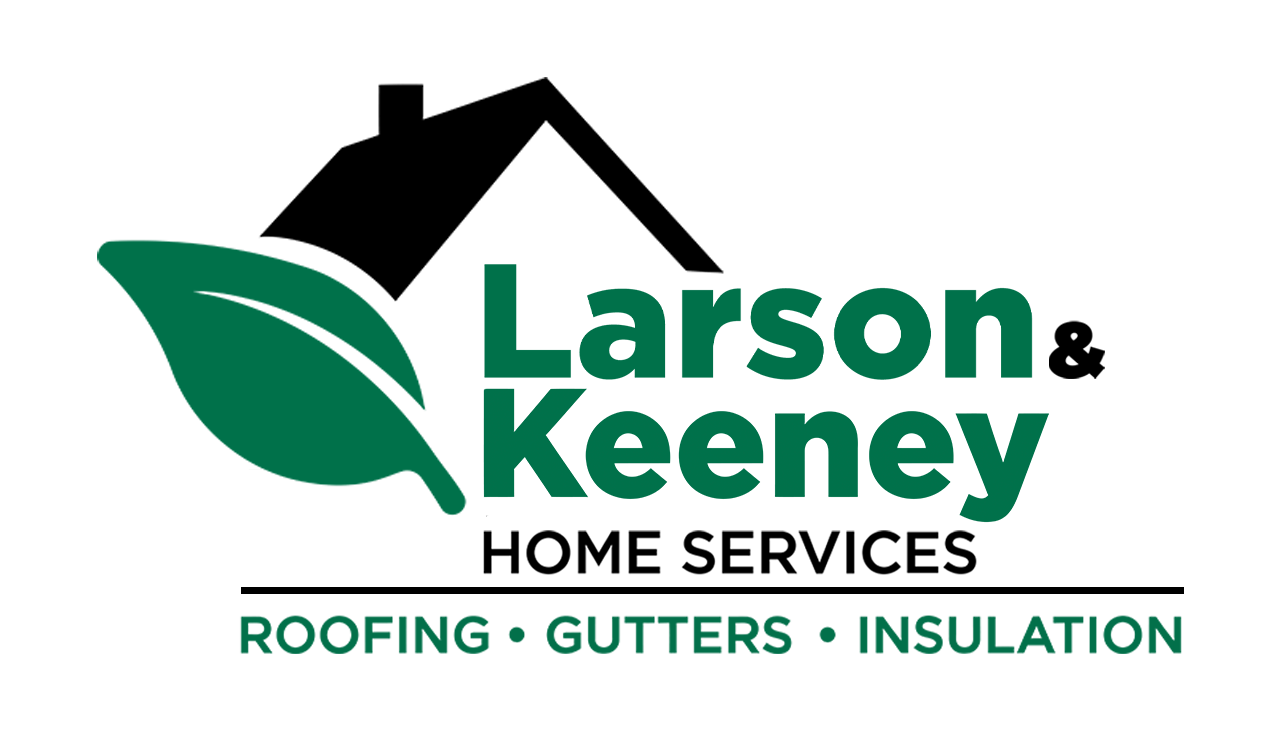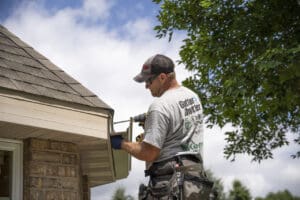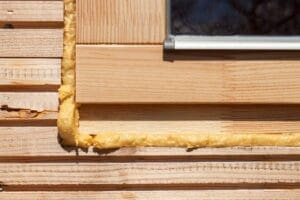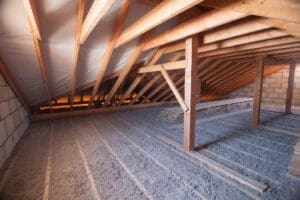Larson & Keeney Home Services—Your Wisconsin Roof Expert in Snow
Understanding the potential risks to your roof is crucial for residents residing in regions with heavy snowfall such as Southeastern Wisconsin. Excessive accumulation of snow and ice can result in damage, leaks, and, in extreme cases, roof collapse. Fortunately, Larson & Keeney Home Services is here to help by giving you effective strategies to manage snow load and mitigate the risk of roof damage. In this article, we will provide essential insights for homeowners in snowy climates on navigating the challenges of snow load and proper snow removal.
Reasons Your Roof Can Collapse From Snow
In snowy regions, buildings and homes have to follow codes that are specifically crafted with snow considerations in mind. Roofs must be constructed to withstand a designated amount of snow weight, typically determined by the average annual snowfall. If your home was built up to code, then your roof should be able to withstand and last through the snowy winters. However, there are reasons as to why your roof could fail or collapse due to snow load, such as:
- An old roof that’s deteriorating or missing shingles.
- A harsh storm or blizzard.
- Freeze-thaw cycles that lead to ice buildup on the roof.
- Low-pitched roofs where snow catches.
- Damaged or clogged gutters that don’t drain properly.
How Much Snow Can Make a Roof Collapse?
If you’re worried that your roof has accumulated a lot of snow and that it may collapse, you first need to calculate the snow load. You do this by multiplying the depth of the snow (measured in feet) by the weight of the snow per cubic foot. For example:
(The depth of the snow) x (The weight of the snow) = the snow load.
(1.5 ft of snow) x (10 pounds per cubic foot) = 15 pounds per square foot of snow.
To accurately calculate snow load, you need to know the density of snow, which varies. Here are some good approximations:
- Fresh, fluffy snow: 4 pounds per cubic foot
- Damp snow: 8 pounds per cubic foot
- Compacted snow: 15 pounds per cubic foot
- Very wet snow: 30 pounds per cubic foot
- Ice: 55 pounds per cubic foot
From the list above, you can see that a foot of wet snow and ice is considerably heavier than a foot of fresh snow. Typically, an average roof can support up to 20 pounds per square foot of snow before posing a concern. While reaching this weight with fresh snow is challenging, it’s relatively easy with ice or sleet—which is why it’s so important to remove snow from your roof while it’s soft before it turns into ice.
Roof Damage Caused By Excessive Snow
When excess snow isn’t removed from your roof, then the possibility of roof damage, failure, or collapse significantly increases. In most cases, when a roof collapses, it’s due to the weight of snow—it starts with a crack that then leads to more severe damage.
Freeze-Thaw Cycles
More often than not, excessive snow on your roof can create ice dams during freeze-thaw cycles. When this happens, the snow starts to thaw or melt during the day, creating pools of water on your roof. Then overnight, the water that has pooled from thawing will freeze again.
Ice Dams
Ice dams are extremely important to watch and avoid—according to our ice load calculator, ice is the heaviest form of snow that increases the likelihood of your roof failing or collapsing. Ice dams create large formations of ice that can rip shingles off the roof, damage gutters, and cause leaks.
Mold
Excessive snow, ice, and water constantly expose your roof to moisture, especially if you have leaks. Moisture not only causes shingles to deteriorate, but it also breeds mold and mildew. Even a small leak can lead to mold growth, but can be hard to determine if your roof is covered in snow, hence making a professional snow removal service all the more necessary.
The Importance Of Professional Snow Removal
Removing snow from your roof is crucial for preventing issues like ice buildup and damage to shingles. However, it’s important to avoid attempting the task yourself by simply climbing a ladder and pushing snow off. This DIY approach can harm shingles, pose risks of personal injury, and potentially cause damage to landscaping and items below.
For a safer and more effective solution, consider hiring a professional roofing company to handle the snow removal process. These experts possess the knowledge to determine the safest method for clearing snow from your roof, and relocating it to areas where it’s melting won’t damage anything under or around it. Moreover, professionals like those at Larson & Keeney Home Services are well-versed in preventing injuries while skillfully removing snow and working on icy roofs.
Call LKHS for Immediate Help With Roof Snow Removal
If you’re concerned about managing snow load in Southern Wisconsin this winter, reach out to Larson & Keeney Home Services. Our skilled professionals collaborate with homeowners across the region, offering expert assistance in snow and ice removal from roofs to safeguard against potential damage.
Don’t let winter worries weigh you down; trust Larson & Keeney Home Services to ensure your home remains secure and well-maintained throughout the season.





